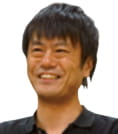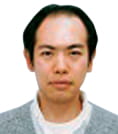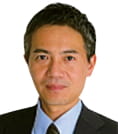- JST Home
- /
- Strategic Basic Research Programs
- /
 CREST
CREST- /
- Research Director/
- Development and Integration of Artificial Intelligence Technologies for Innovation Acceleration/
- [Artificial Intelligence] Year Started : 2020
[Artificial Intelligence] Year Started : 2020
Tanaka Toshihisa
Establishing AI-based Diagnosis Support for Epilepsy With Electroencephalographic Big Data of Multiple Facilities
Research Director
Tanaka Toshihisa

Professor
Department of Electrical and Electronic Engineering
Tokyo University of Agriculture and Technology
Collaborator
| Hidenori Sugano | Associate Professor Department of Neurosurgery Juntendo University |
Vision
We establish a platform fusing a multi-facility database of electrophysiological signals, the knowledge of experts, and signal processing and machine learning techniques to achieve the most advanced neurophysiological investigation so that people all over the world can equally have the best diagnosis of “brain disease.”
Outline
The current challenge is the unavailability of sufficient number of specialists that can analyze the needed at present complex neurophysiological (electrophysiological) investigations and provide adequate management to a broad range of conditions, such as epilepsy, in a large patient population. For that purpose, we attempted to create a model integrating specialists’ knowledge and decision-making in the form of AI modules in a platform that can be shared.
Hiroki Matsutani
Development and Social Implementation of On-Device Learning Technology
Research Director
Hiroki Matsutani

Professor
Faculty of Science and Engineering
Keio University
Collaborator
| Tamao Okamoto | Manager Product Analysis Center Panasonic Corporation |
| Masaaki Kondo | Professor Faculty of Science and Technology Keio University |
| Yasuhiko Shioda | Senior Consultant Solutions Division 1 Fixstars Corporation |
| Takahiro Nishiyama | Manager Circuit Technology Development Div. ROHM CO.,Ltd. |
| Takemasa Miyoshi | Team Leader Center for Computational Science RIKEN |
Vision
Based on an on-device learning algorithm, associated technologies, and their chip integration, we will extend an application range of edge AI to sensor devices, provide a self-adaptive intelligence which is resistant to environmental changes for them, and promote safe and reliable industries and their automation toward a highly optimized social system.
Outline
We will provide an on-device learning algorithm, federation learning algorithm, associated technologies, and their chip integration, so that a lot of IoT devices can acquire a self-adaptive intelligence which is resistant to environmental changes, and support a maintenance-free operation of low-end edge AI which is intrinsically diverse and embedded. The concept of the proposed on-device learning technology will be demonstrated in various application fields including smart industry, facility monitoring, meteorological sensors, consumer devices, and sensor tags.
Ken’ichi Morooka
Computer-Aided Cancer Screening System by 3D AI for Identifying Cells.
Research Director
Ken’ichi Morooka

Professor
Graduate School of Natural Science and Technology
Okayama University
Collaborator
| Eiji Ohno | Visiting researcher Research Center for Life and Health Sciences Kyoto Tachibana University |
| Hajime Nagahara | Professor Institute for Datability Science Osaka University |
| Hideki Hashimoto | General Manager R&D Planning Division Proassist, Ltd |
Vision
We automate cytological cancer screening, which has depended on visual observation until now, by 3D shape measurement of cells, cell database development, and machine learning techniques for the diagnosis. Through this automation, we provide a high-speed and high-precise cancer screening system, by which everyone in the world can receive a high-quality cancer diagnosis anywhere.
Outline
Cancer screening using human tissue samples is useful for early detection of cancers with its less invasive natures. Our project is to develop an automatic AI-based system of cancer screening using 3D information about cells obtained from multi-focus digital images with gigapixels. Our system contributes to the drastic improvement of the accuracy and efficiency of the cancer screening compared with existing commercial screening system using 2D cell images.
Link
Project website













